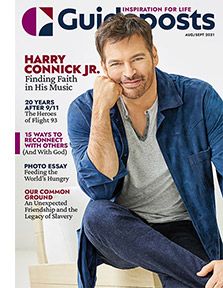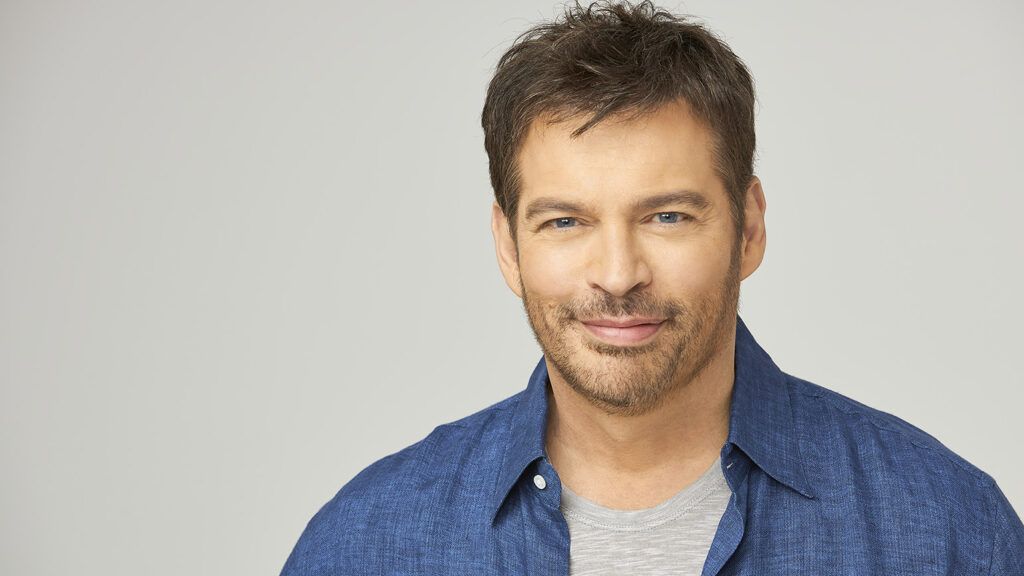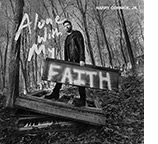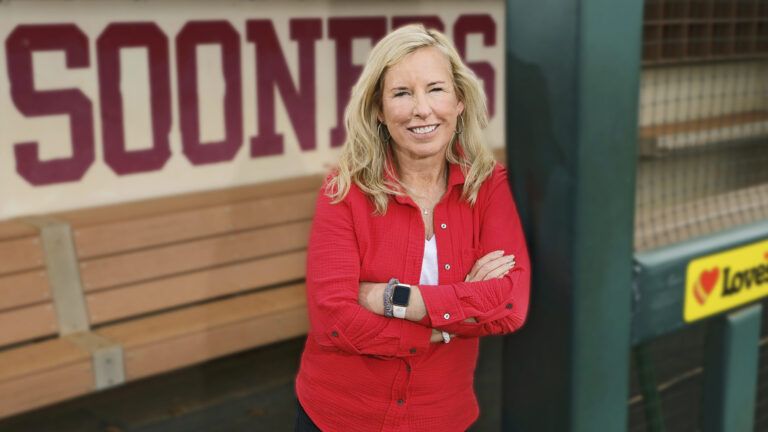Greetings from the Big Easy, the city where I was born and raised (and hope to be visiting as you read this), a city coming back to life after being hit so hard by Covid. I’m thankful that the worst may finally be behind us, but I won’t forget the pain and disruption we all endured.
This virus made us question everything. I worried about my family, my city, my country, the whole world. For most of the past 30 years or so, I’ve spent my life working—on the stage, in a recording or TV studio, on a movie set—or with my family.

issue of Guideposts
As much as I love to work, during the pandemic it was the last thing on my mind. I spent a lot of time thinking about the selfless everyday folks who were making our lives livable—or, more accurately, possible. I even got a chance to thank them personally in a CBS TV special I produced in June 2020.
I watched from a distance while New Orleans got hit early, the streets empty, hospitals overflowing. My wife, Jill, and I and our three girls were at our home in Connecticut—we were among the lucky ones—and stayed there when everything locked down. Everywhere you looked, people were getting sick. Our family lost 14 people—10 due to complications from Covid.
A beloved uncle. The priest who married Jill and me. My mentor, jazz musician Ellis Marsalis, patriarch of the brilliant Marsalis family. What made this especially hard was that we couldn’t go through the natural grieving process. Normally there’s a communal event where everyone gets some closure. Then, over time, you merge back into life’s fast lane. The problem with lockdown was that you never got back on the highway. You were just stuck with the loss.
The most painful loss for my family, by far, was that of my mother-in-law, Glenna Goodacre. As many of us know from this pandemic, there’s not much worse than losing someone so close and not being able to do anything about it. No funerals, no memorial services, nothing.
At first, I watched the news. New Orleans itself seemed to be dying, along with all the things that make it great. The city had been through this before with Hurricane Katrina. Now here we were again, struggling to understand how we were to survive another catastrophe. I knew we would, but the devastation was brutal to watch in real time.
New Orleans is a city like no other. The way I was brought up, you were aware of people’s different races, cultures and backgrounds—Black, white, Irish, Italian, Jewish—and we celebrated all of them. The differences were good. Like the different ways people made gumbo. My uncle Ray’s gumbo vs. Miss Leah Chase’s gumbo at her restaurant Dooky Chase’s vs. the gumbo from the kitchen of my friend’s mother, who lived in the projects. All of them different, all good.
But now people couldn’t even go out. It didn’t matter how good your gumbo was—you and your family were the only ones who were going to eat it. You couldn’t go anywhere. Not even church. That was especially hard for my family. Telling my dad he couldn’t go to church was a really serious matter.
I had been on tour when the world shut down. A few weeks into lockdown, I felt the need to play some music. So I started going into my home studio, thinking of new ideas for songs, playing old and familiar ones, just passing time with music, something that’s comforted me my entire life.
Normally when you’re in a studio to record, there’s a schedule. You’re working with other musicians, recording engineers. On big orchestral albums, you record in three-hour chunks—anything over that is extra money. You’ve got to finish the whole project in a set period of time.
Not during lockdown. It was as if there was no end in sight. In my studio, by myself, I’d sit down at the keyboard and start recording something, or pick up my trumpet or guitar or whatever and add a part. Lyrics would come to me, original songs.
The surprising thing was how my faith was running through it all. Sometimes my faith was strong; sometimes I questioned it. I was writing and recording about the entire spectrum of faith I was experiencing and healing myself in the process. Traditional songs popped into my head too, classics like “Amazing Grace,” “How Great Thou Art,” “The Old Rugged Cross.”
I started to put down tracks, one at a time: piano, drums, vocals. Making a record all by myself. My dad loves “Panis Angelicus,” and my stepmom’s favorite is “Old Time Religion,” so I recorded those too. In those hours and days, the dread of the pandemic receded a bit, and I felt a little better. That’s what music is supposed to do, but this time it became so powerful.
It was my dad who took charge of my faith growing up. Mom was born Jewish, but she had no problem with my dad taking me to church. He’s a devout Catholic to this day—he’s 95 now. We’d go to different churches in our neighborhood: St. Louis King of France, St. Pius X or St. Dominic. We’d sing all those wonderful songs during Mass, like “Be Not Afraid” or “Panis Angelicus.”
My dad’s a Navy veteran. He can still tell you the names of everyone who was on his ship in World War II, even their hometowns. His mental acuity is mind-boggling. My mother was a great lover of music and came from a musical family. She played the flute.
My parents were both lawyers, and they helped put themselves through law school by running their own record store. They knew a lot about music. By the time I was born, the record store was long gone. When I was really young, like three maybe, I would plunk out a tune after my sister’s piano lesson. I loved it. Nothing could keep me away from the keyboard.
I was five when my dad was hosting an event and my mom wanted me to play “The Star-Spangled Banner” on the piano. It was the first time I’d ever performed for a crowd. What a powerful feeling, connecting with people, just through some chords and a melody. That stuck with me.
I’m so grateful to my parents for what they gave me—their love and support. To make a kid feel as if he really matters, that he has something to offer the world, that he has something that needs to be developed and explored. That’s the greatest thing a parent can give to a child. I owe everything to them.
At age 14, I decided to get baptized in the Catholic church. My mom wanted my sister and me to wait until we were old enough to choose which faith we wanted to follow. If ever I needed faith, it was then—the year my mom died of ovarian cancer. It was the hardest thing I’ve ever had to go through. It took me many years to get to the point where I was even able to talk about it.
I’m at a place now where, even though I miss her terribly and think of her every day, I’m able to share stories about her. The thought of her brings me great joy.
Grief giving way to healing—that kind of describes my time in my home studio during the Covid lockdown. Sometimes I would start with piano, sometimes with the drums or another instrument. I’d write lyrics. Write down a melody. Just sort of chip away at it. If I had an idea about another song in the middle of things, I would switch gears and do that. It was completely open-ended. I kept recording until I found what I was looking for. No one else was listening. It was like I was journaling—a musical journal.
I’ve recorded a million albums but nothing like this—no recording engineer, no producer, no other musicians. I’d talk to myself, laugh at myself. Speak out loud. Pray—but the song itself could be the prayer. “What kind of believer am I?” I wondered. That turned into a song: Am I a benevolent man? Am I an irrelevant man? I do the best I can.
This was all about living out my faith, living out the questions. You can’t really cry and sing at the same time, but I found myself bursting into tears—something I’ve never done in a formal recording session. I guess I should be uninhibited enough to cry in public, but somehow the distractions of a recording session and ingrained social cues have always prevented me from going there. I’m glad I was able to get to an emotional place I’d never been.
At other times, I would stretch out my arms and raise my hands, as if I were there at Calvary 2,000 years ago and had come upon “The Old Rugged Cross.” Jill and our three girls were upstairs—Georgia, Kate and Charlotte. We’re a pretty loud family and like to tell each other jokes and make each other laugh. Sometimes one of the girls or I would burst into song. Those moments of joy and love, spontaneous moments, kept us going.
Then I’d go back downstairs to my studio. No churches were open. I’d watch Mass on my computer and eventually got on a list to reserve a socially distanced spot at my local church. This was such a strange time. The world was so angry, so uncertain. There was so much political unrest and division.
I remember sitting at the kitchen table, watching the news and coming up with the opening lines to a song. “My life has changed,” I wrote, “My world is uncertain / Everything’s strange / Everything’s new / But I’m not concerned / With what tomorrow will bring / ’Cause I’ve got today / And I’m gonna pull through.”
I didn’t have to search for anything poetic. They were just words that captured what I was feeling. And I knew that everyone else was feeling the same thing. The day I wrote those words, I went for a drive. I got stuck in traffic. I was thinking of those lyrics to my new song “Alone With My Faith” when I noticed the license plate of the car in front of me: FAITH 1. It took my breath away ’cause it was true. Faith won. It always does.
In the end, the music that I recorded during the lockdown became an album, one conceived in isolation but something I had to share, an album I entitled Alone With My Faith. The music came from that place of deep thought and solitude, a place that I’m grateful I had the chance to spend so much time in.
One of the last things we did was a photo shoot for the album cover. Our daughter Georgia is a great photographer, and she had it all worked out. She took an old upright piano, one in such a state of disrepair that it didn’t even play, no strings left in it, all the hammers busted. We hauled it out into the woods. On the front panel, our daughter Charlotte spray-painted the word faith. Just that. Georgia took the photograph.
What did it mean? If I had to reduce this past year to one thing, one lesson, it would be that. Faith. Because in the solitude of the lockdown, in the isolation from the people and even the city and the rituals I love, it was all I had to hang on to, note by note, chord by chord. Or in the words of one of those songs I put on the album, “Amazing Grace”: Through many dangers, toils and snares / I have already come; / ’Tis grace that brought me safe thus far, / And grace will lead me home.
Alone With My Faith is available wherever music is sold. You can catch Harry Connick Jr. live this summer on his Time to Play! outdoor tour. Check out harryconnickjr.com for details.
For more inspiring stories, subscribe to Guideposts magazine.







